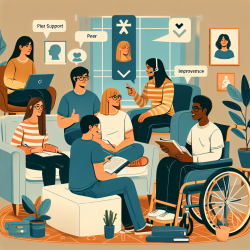In today's interconnected world, understanding how individuals seek health information is crucial for practitioners aiming to improve their services. A recent study conducted in South Tyrol, Italy, sheds light on how linguistic group membership influences health information-seeking behavior (HISB). This research offers valuable insights for practitioners looking to enhance their skills and better serve diverse populations.
The Study: A Closer Look at Linguistic Influences
The study explored HISB among 504 adults in a linguistically mixed region of Italy. Participants were primarily German (68%) and Italian (28%) speakers. Through latent class analysis, researchers identified three distinct classes of HISB:
- Multidimensional: Individuals in this group engage with a wide range of information sources, including friends, healthcare professionals, and online databases.
- Interpersonal: This group relies heavily on personal interactions with friends and healthcare professionals for health information.
- Technical/Online: Members of this class prefer using online searches and electronic databases to seek health information.
Key Findings and Implications for Practitioners
The study revealed that linguistic ethnicity significantly influences HISB. For instance, German speakers were more likely to belong to the "multidimensional" group, while Italian speakers were more prevalent in the "technical/online" class. These findings highlight the importance of considering linguistic and cultural factors when designing health interventions.
Practitioners can leverage these insights by tailoring their communication strategies to meet the needs of different linguistic groups. For example:
- Cultural Competence: Develop culturally and linguistically responsive materials that resonate with diverse populations.
- Technology Integration: Encourage the use of digital tools among groups less inclined to seek online information by offering training sessions or workshops.
- Interpersonal Engagement: Foster strong relationships with patients through personalized interactions, especially for those who rely on interpersonal sources for health information.
The Path Forward: Encouraging Further Research
This study underscores the need for ongoing research into how linguistic and cultural factors affect HISB. By understanding these dynamics, practitioners can better address potential deficits in healthcare systems and improve patient outcomes.
If you're interested in delving deeper into this topic, consider conducting your own research or collaborating with experts in the field. Understanding the nuances of HISB can empower you to provide more effective care and support to your patients.
To read the original research paper, please follow this link: Health information-seeking behavior associated with linguistic group membership: latent class analysis of a population-based cross-sectional survey in Italy, August to September 2014.










